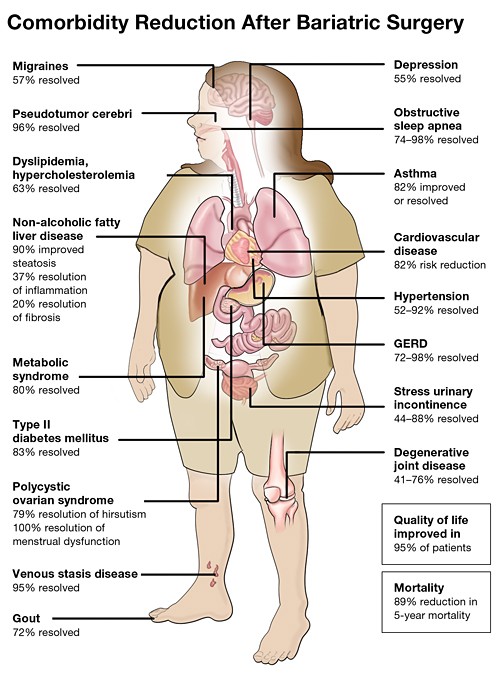Medical Treatments for Obesity in Amarillo, TX
At Panhandle Weight Loss Center in Amarillo, TX, we provide medical treatment for weight loss and obesity solutions that work.
People with obesity frequently suffer from a range of dangerous related conditions (comorbidities), such as type II diabetes and cardiovascular disease, and have a lower life expectancy than individuals with healthy body weight. They also suffer from social stigmatization, higher medical costs, and other negative impacts on their quality of life. Fortunately, many of these burdens can be eliminated with proper medical treatments for obesity.1
We have created an environment of understanding and compassion at PWLC, and are committed to empowering people with obesity to embrace the necessary lifestyle changes to enjoy happier, healthier lives. We invite you to read on and learn more about the disease of obesity, then contact us to learn how we can help you overcome it.
Obesity as a Disease
There are so many stigmas about obesity, not the least of which is the conception that obesity is a choice brought on by poor eating habits and a lack of willpower. According to the U.S. Centers for Disease Control and Prevention (CDC) and all reputable medical sources, obesity is a chronic disease. As such, overcoming obesity most often requires medical treatment in the form of medically supervised weight loss or bariatric surgery.2
Understanding Your BMI
BMI < 20 Underweight
BMI 20-24.9 Healthy weight
BMI 25-29.9 Overweight
BMI 30-34.9 Obese
BMI 35-39.9 Severely obese
BMI 40-49.9 Morbidly obeseBMI > 50 Super morbidly obese
Health Effects of Obesity
Obesity has been referred to as a global pandemic, and is associated with a long list of comorbidities (conditions or diseases that are strongly related to the primary disease of obesity), including:
- All causes of death (mortality)
- Anxiety
- Arthritis
- Asthma
- Body pain
- Cancer (breast, uterine, cervical, endometrial, ovarian, colon, rectal, esophageal, liver, gallbladder, pancreatic, kidney, and prostate cancer)
- Clinical depression
- Coronary disease
- Esophageal cancer
- Infertility
- Immobility
- Gallbladder disease
- Heartburn
- Heart disease
- High LDL cholesterol
- High triglycerides
- Hypertension (high blood pressure)
- Low HDL cholesterol
- Low quality of life
- Mental illness
- Migraine
- Osteoarthritis
- Pancreatic cancer
- PCOS (polycystic ovarian syndrome)
- Pseudotumor cerebri
- Reduced physical function
- Sexual dysfunction
- Sleep apnea
- Stress urinary incontinence
- Stroke
- Type 2 diabetes3,4

The most effective treatment for individuals who are obese or morbidlly obese is weight loss surgery, which can reduce or even eliminate obesity comorbidities. Some of the most dramatic reductions in comorbid conditions experienced by bariatric surgery patients are detailed below.
Obesity Causes
People are not born with obesity: this disease results from genetic, metabolic, hormonal, environmental, and lifestyle factors that are often impossible to overcome without dedicated medical treatment for obesity.
Causes of obesity are different for every person, but most frequently result from a range of contributing factors such as:
- Genetic predisposition
- High caloric intake
- High carbohydrate intake
- Imbalance of digestive bacteria
- Lack of physical activity
- Lack of sleep
- Low metabolism
- Some diseases and medications
- Stress
- Unhealthy diet5
Tips to Manage Obesity
While bariatric surgery is the most effective treatment for obesity, it is only one of many factors that help our patients achieve a healthy weight. In order for weight loss surgery or medically supported weight loss to be successful, patients must proceed with determination and consistency as they embrace the lifestyle changes necessary for successful and sustained weight loss.

Diet
Improper diet choices are the leading cause of obesity, and food habits can be particularly difficult to change. Until they work with us, many of our patients don’t realize how closely their eating habits are related to family and societal influences.
As a patient at PWLC, you’ll work with a Dietician to develop a strategy based on healthy choices that will support your goal of a healthy diet and reduced weight. This will include:
- Reducing your intake of carbohydrates
- Reducing or eliminating processed foods
- Staying hydrated with water and healthy beverages
- Keeping track of your food intake
- Meal and shopping plans
- Healthy recipes that are also delicious and satisfying
Exercise
Physical activity is key to weight loss as well as the resolution of many obesity comorbidities. The CDC recommends that adults spend at least 150 minutes engaging in moderate physical activity every week, and they should also do strength training at least twice a week. Studies also show that combination of aerobic training and strength training (resistance training) are the most effective way to reduce body mass through exercise.6
At Panhandle Weight Loss Center, we realize that many patients with obesity struggle with even basic physical activity like getting around in the house. We also know that our patients are often stronger than they give themselves credit for. Your dedicated PWLC trainer will accurately assess your current level of physical activity and capability. Then, you will work together to develop exercises and a workout routine that best meets your needs. It will be challenging, but we’ll never ask you to do anything that endangers your safety or health. We know you can do it!


Environment
It is not uncommon for patients on the journey to health through medical weight loss or bariatric surgery to shift where, how, and with whom they spend their time. For example, if you know you tend to overeat at events or certain restaurants, you may want to cut those temptations out of your life. Likewise, patients often find that family members or friends who don’t share their goal of a healthier life or who are negative influences aren’t the best people to spend time with.
When it comes to altering the environmental and social factors that contribute to obesity, many of our PWLC patients find that it is very helpful to discuss their challenges with a therapist.
Contact Us for Obesity Solutions in Amarillo
If you suffer from obesity, it’s very likely that you have already attempted to lose weight with less-than-satisfactory results. That can be discouraging, but we can offer hope. At Panhandle Weight Loss Center, we specialize in providing proven medical treatments for obesity and solutions to guide you along your healthy weight loss journey. For more information on obesity and how our Amarillo team can help you overcome it, please contact us today.
1 Centers for Disease Control and Prevention. Adult Obesity Causes & Consequences. Available: https://www.cdc.gov/obesity/adult/causes.html. Accessed August 10, 2020.
2 Centers for Disease Control and Prevention. Adult Obesity Facts. Available: https://www.cdc.gov/obesity/data/adult.html. Accessed August 10, 2020.
3 Centers for Disease Control and Prevention. Adult Obesity Causes & Consequences. Available: https://www.cdc.gov/obesity/adult/causes.html. Accessed August 10, 2020.
4 Wolfe BM, Kvach E, Eckel RH. Treatment of Obesity: Weight Loss and Bariatric Surgery. Circ Res. 2016;118(11):1844-1855. doi:10.1161/CIRCRESAHA.116.307591. Accessed August 10, 2020.
5 Mayo Clinic. Obesity. Available: https://www.mayoclinic.org/diseases-conditions/obesity/symptoms-causes/syc-20375742. Accessed July 10, 2020.
6 Willis LH, Slentz CA, Bateman LA, et al. Effects of aerobic and/or resistance training on body mass and fat mass in overweight or obese adults. J Appl Physiol (1985). 2012;113(12):1831‐1837. doi:10.1152/japplphysiol.01370.2011. Accessed May 19, 2020.
The surgeons at Panhandle Weight Loss Center have either authored or reviewed and approved this content. Page Updated: